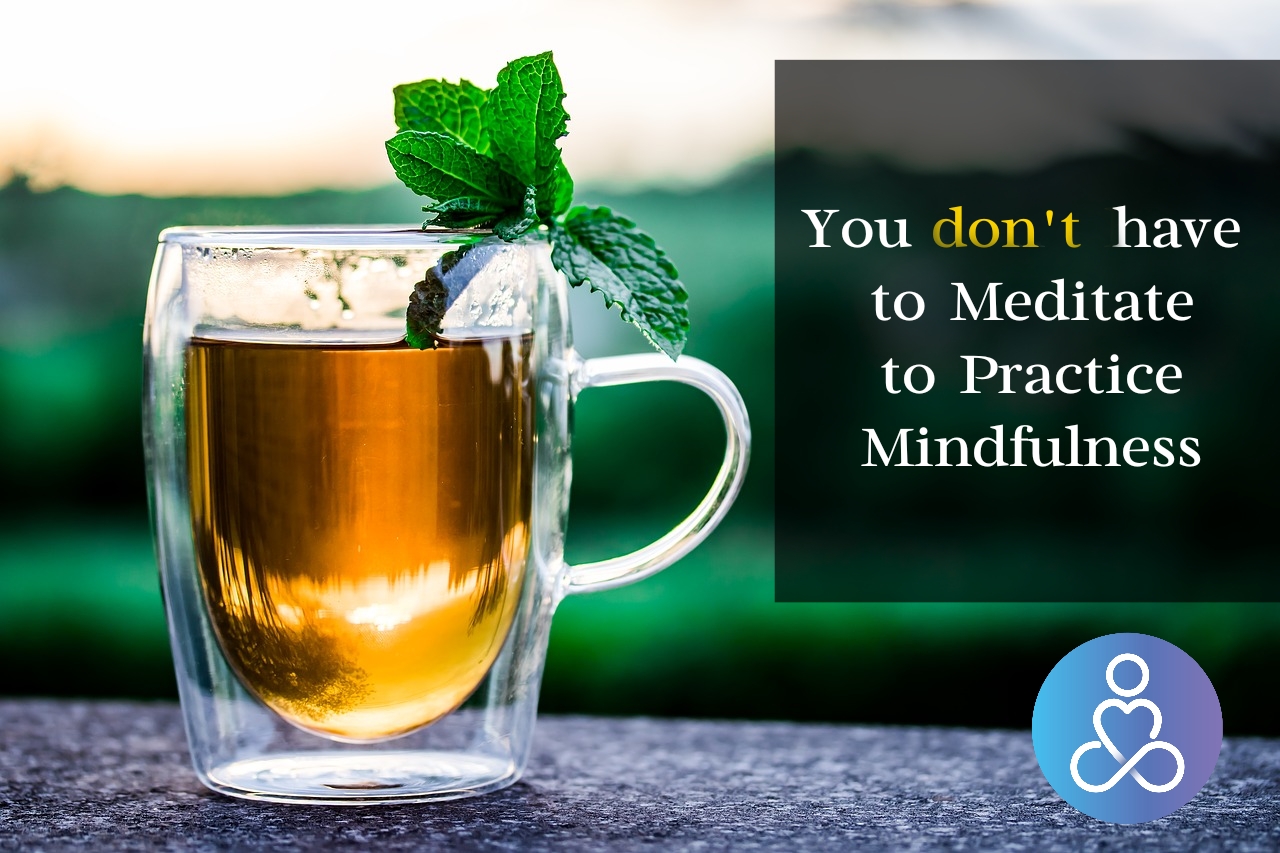You Don’t need to Meditate to Practice Mindfulness
If you are new to Mindfulness but feel the idea of sitting for 20 or 40 minutes a day daunting then read on. Learn about the informal practices that you can bring into your life, to start your Mindfulness Journey today.
Mindfulness is bringing conscious awareness into the present moment. Not ruminating over the events of the past or worrying about what might happen in the future. You are simply living in the moment. Fully present in whatever it is you might be doing at the time. We tend to call this ‘being’ rather than ‘doing’.
The good news is that Meditation is just one of the tools we use to build our “Mindful Muscle” but it is not the only one! So if you have been avoiding Mindfulness because you think your not ready to meditate then an Informal practice might be the place to start.
If you’re wondering what Informal Practice is…
We tend to call a regular meditation practice, where you set aside an amount of time to meditate, a “Formal Practice”. This can take on many different forms like a Sitting Meditation, Mindful Movement, Mindful Walking, Yoga.
An “Informal Practice” is where you might bring a Mindful awareness into an everyday task. You become consciously aware of the task and the moment. In fact by bringing our thoughts back to the task, we are actually meditating. It might be for 5 seconds or 30 seconds but by training the mind to return to the task at hand, you are meditating.
It is my belief that “Informal Practice” is just as powerful and a perfect place to start for someone who wants to bring Mindfulness into their life but isn’t ready to start meditating. As you build this ability to be mindful throughout your day, it may break down any barriers you have to meditating.
With that in mind, here are 5 Simple Practices that don’t involve meditating on a seat or cushion but could get you started on your own Mindfulness journey today.
- Where are you when you brush your teeth?
- Are you showering on your own?
- Who are you sharing your tea with?
- Have a phone free commute, stop the mindless scrolling.
- Can you see something new, that’s always been there?

Brushing our teeth is something that we do everyday but how often are we thinking about the day ahead as we brush our teeth? The next time you are brushing your teeth, try to keep your thoughts on your teeth. If your mind drifts off to the day ahead, don’t judge it, just bring your mind back to your teeth.
How does the toothpaste taste?
What is the smell from your toothbrush?
How many times are you moving your brush back and forth?
What sounds are you making when you brush your teeth?

How often do you step into a shower but as soon as the water starts, your mind is repeating a conversation you had with someone the day before? Don’t let that person into your shower. Bring your thoughts back to where you are, again, without judgement. They are only thoughts after all and the mind is just doing what it does. Here are some ways to get your thought back to the task at hand:
How does the water feel as it flows?
How does the shampoo or body wash smell?
What can you hear as the water is flowing?
Is there a sound you hear today that you never felt noticed before?
Try to keep your thoughts on the experience until you are finished.

There are times to share and there are times that you just need to protect your space.
If you find your mind drifting off when you are having a cup of tea then bring it back to your moment. Give yourself this time. You don’t have to think about your day ahead or anything that happened yesterday. This 5 minutes will happen whether you think about them or not.
How does the cup feel in your hand?
What are you smelling?
What are you tasting?
How does feel as you take that sip?

If you are someone who normally scrolls their way through their commute, try leaving your phone in the bag for one day a week.
Try to take in everything on the route.
If its on a bus or train, how many stops are there until your destination?
If you’re in a car, how many traffic lights are there?
What sounds do you hear on the journey.

If there is something that you do routinely, our mind can move into Autopilot mode. In this mode, our mind blocks out what we don’t need to see. When we are in Autopilot mode, our mind often blocks out many things that have nothing to do with what we are trying to do. When we turn off Autopilot mode and are fully present, it allows us to see things that were always there but our mind was just blocking it out.
So next time you are in your favorite coffee shop, look out for something you never noticed. Is there something on the menu that you never realised?
If you are always go the same way on a walk, take a detour.
Open your mind up to new experiences outside your norm.
These are just a few ideas to get you started on your Mindfulness Journey. Each one is actually a mini meditation in itself. It is my hope that by incorporating some of these simple practices into your life, it may breakdown any barriers that may have about Mindfulness and Meditation. Before you know it, you could be setting aside 20 minutes a day to do that meditation that you thought you could never do!
If you have other ways that you informally bring Mindfulness into your day, please leave a comment or consider joining our group The Mindful Living Guide


